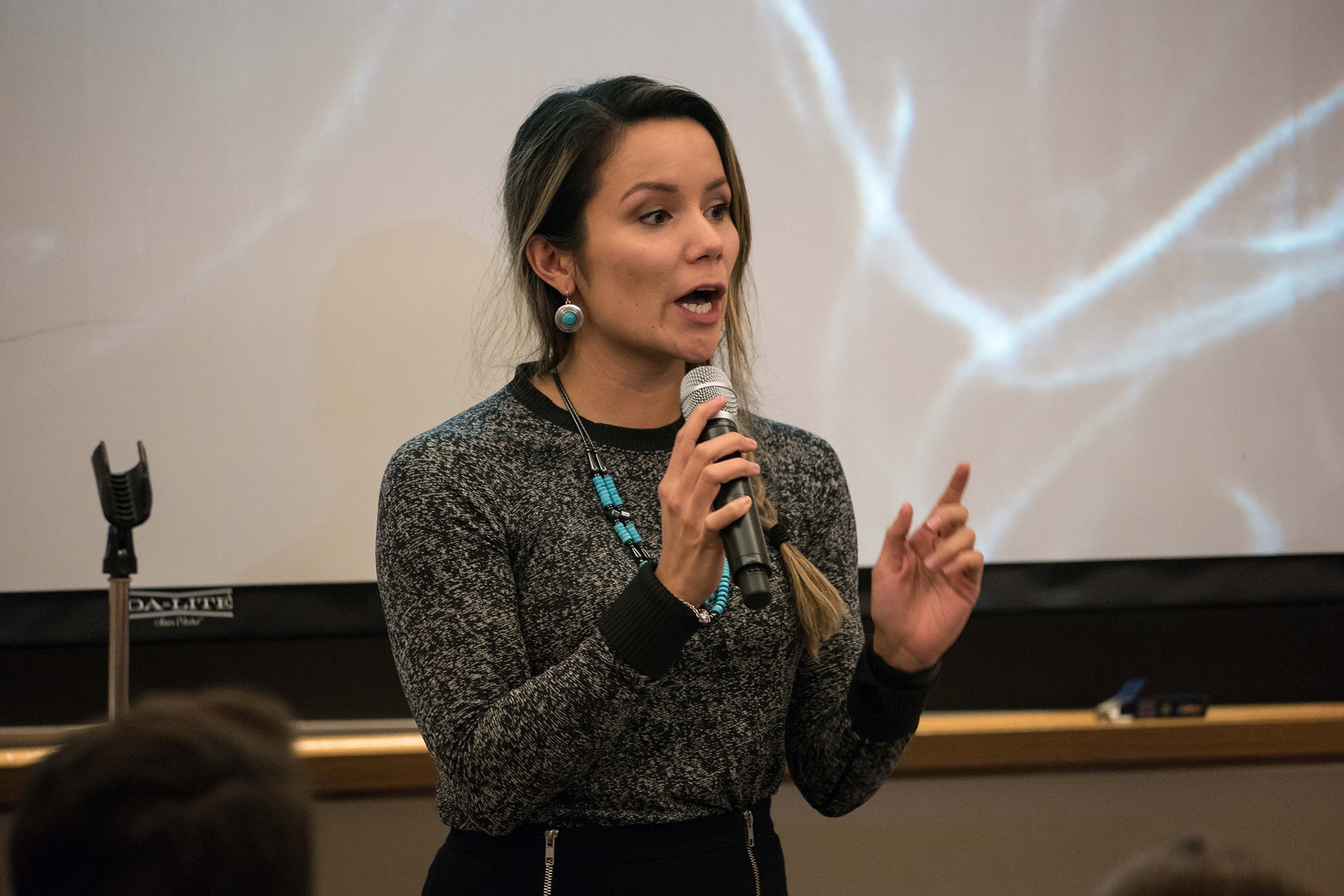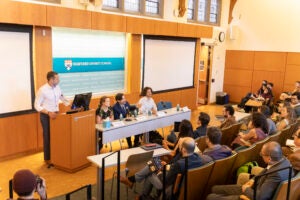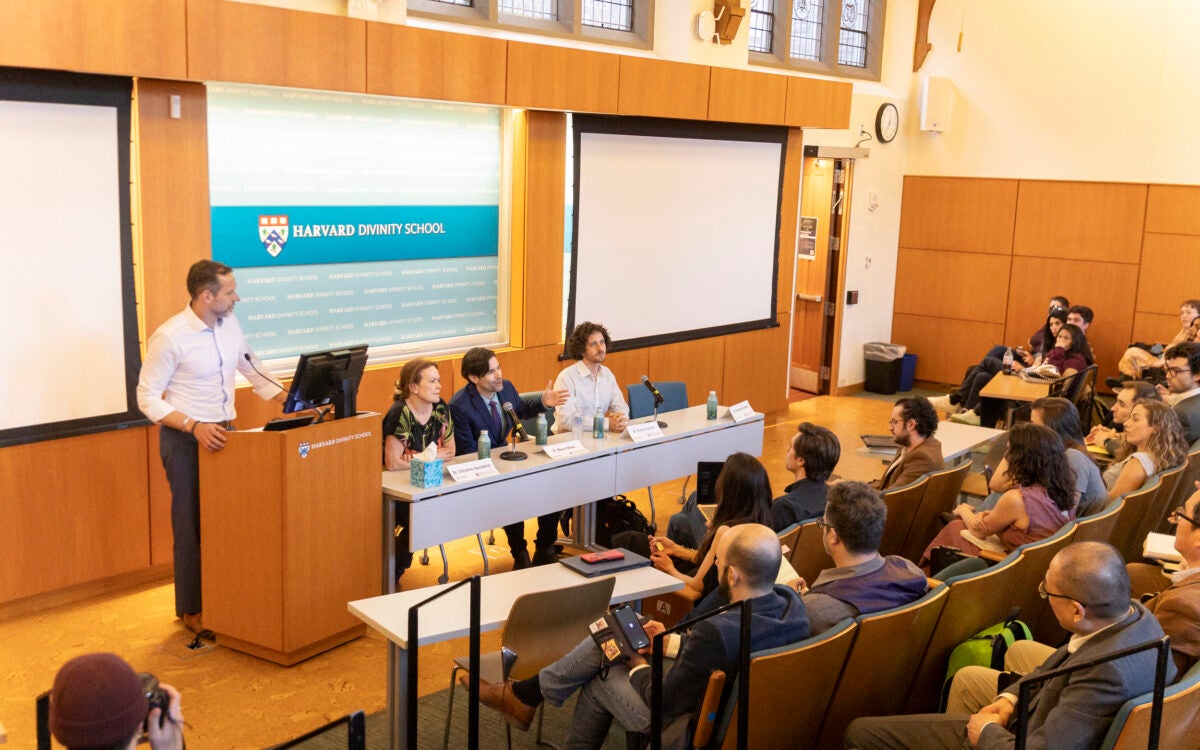HKS students offer innovative ideas for tackling climate change impacts on Arctic

HKS student Gabrielle Scrimshaw presents her pitch during an Arctic Innovators competition at the Kennedy School. Benn Craig/Belfer Center
To much of the world, the Arctic is seen as a faraway, isolated region populated by polar bears and not much else.
“The truth is that the Arctic is so much more than that,” said Halla Hrund Logadóttir, a co-founder of the Arctic Initiative at Harvard Kennedy School’s Belfer Center, during an Arctic Innovators event Wednesday at the Kennedy School.
The region’s 4 million people, spread among eight countries, are seeing their lives upended by rapid climate change, Logadóttir said, as communities are lost to rising sea levels and new oil, gas, and fishing resources open up for the first time.
The Arctic Initiative’s Arctic Innovators program allows students to develop ideas to tackle these challenges and improve the future of the Arctic, which has also become a bellwether for climate change worldwide. The program’s first cohort presented ideas at the Arctic Circle Assembly in Iceland in October and discussed their ideas with experts at the Arctic Innovation Lab.
But Wednesday’s event, held in the Kennedy School’s Bell Hall, challenged the students to take a semester’s worth of work and condense it into a two and a half minute pitch.
Some proposals sought to utilize emerging technologies to meet the region’s unique demands, such as drones that would deliver essential goods like food and medical supplies to remote populations. Other ideas focused on using the power of national and subnational governments to enact change in the Arctic. One student proposed setting up a fund for climate migrants by imposing a $1 levy on plane tickets in and out of the Arctic.
After the presentations, the audience and a panel of judges voted, independently, for the winning presentations. Both groups picked the same winner: Gabrielle Scrimshaw, who pitched what she said would be the world’s first investment fund for ventures owned by indigenous people, primarily in the booming tourism industry in northern Canada.
Indigenous communities in Canada’s north often lack the access to capital needed to start tourism businesses, she said, but some indigenous communities in other parts of the country “are sitting on millions of dollars of capital from land-sharing and resource agreements, looking for avenues to invest.”
The issue is personal for Scrimshaw, a member of the Hatchet Lake First Nation who grew up in a town of 800 people in Saskatchewan. She co-founded the Aboriginal Professional Association of Canada, and in 2013 the Huffington Post named her one of “3 Young Aboriginal Canadians To Watch.” This June, she wrote about her childhood and the oppression long faced by aboriginal Canadians in an op-ed published in The New York Times.
With Scrimshaw named the winner, Chris Colbert, Director of Harvard’s Innovation Lab, closed the event with a pitch of his own, encouraging students to apply for its Venture Incubation Program to further develop their ideas and give them a chance to compete for a cash prize in Harvard University’s President’s Innovation Challenge. — Jacob Carozza




